Tiffany Everett began smoking cigarettes when she was 14 years old. She smoked for “well over 22 years.” She was able to quit cold turkey twice while she was pregnant with each of her sons, but both times, she says, “I was back to smoking within a year.” Eventually, she says, “I got to the point where I knew it wasn’t good. I tried to quit a lot of ways, but I just couldn’t.” Then she tried vaping. She says within two days she was done with cigarettes and hasn’t picked one up since.
Despite the recent rise in vaping-related illnesses across the country and the growing concern over the safety of vaping products, Everett continues to consider vapes a life-saving technology: “I confidently believe in vaping because I know how I feel and how my health has been.”
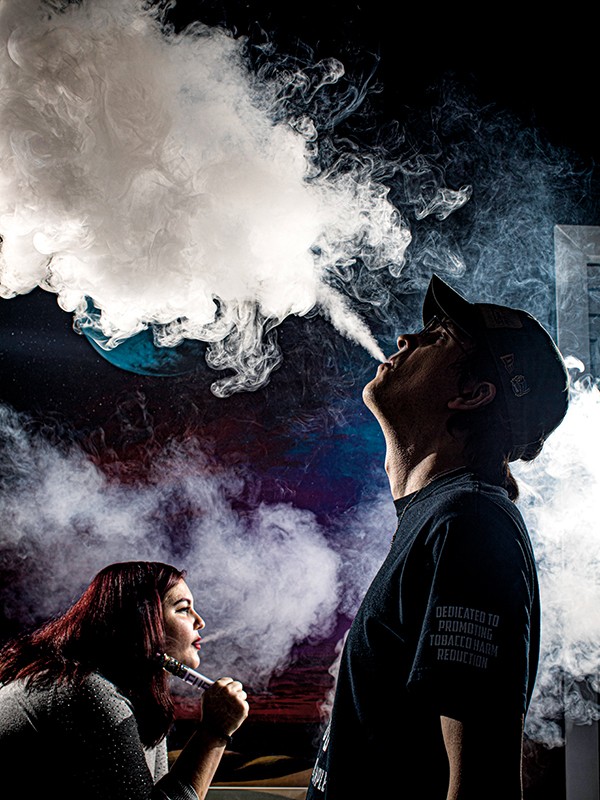
The Data
The latest data from the Centers for Disease Control and Prevention (CDC) cites a total of 2,051 e-cigarette, or vaping, product-use-associated lung injuries (EVALI) cases in 49 states, Washington, D.C., and a U.S. territory, resulting in 39 deaths.
In Tennessee, there have been 64 reported cases of vaping-related illnesses and two deaths, according to the latest reports from the Tennessee Department of Health. Five of the 58 cases, including one death, have been in West Tennessee.
Last week, for the first time since the start of the outbreak, CDC officials announced a potential breakthrough in their investigation of EVALI, reporting that tests have revealed the chemical compound likely responsponsible is Vitamin E acetate. The findings are the result of testing lung tissue from 29 patients across 10 states. Vitamin E acetate was present in all of the samples. The compound, found in many foods and cosmetic products, is often used as an additive in THC-containing vapes.
“These new findings are significant,” says Anne Schuchat, a physician who is the CDC’s principal deputy director. “For the first time, we have detected a potential toxin of concern.”
The CDC has not ruled out the possibility that other chemicals could be contributing to EVALI. As the investigation continues, the agency advises the public that the only way to “assure that you are not at risk” is “refraining from use of all e-cigarette and vaping products.” It specifically advises staying away from vapes containing THC — particularly those bought illicitly.

Thomas Ian Eubanks mans the counter at Create A Cig, where more than 100 flavors of e-liquid line the wall.
The Industry
Ryan Bruce, district manager of Create A Cig, says most people in the vaping community have known Vitamin E acetate was a likely contributor to the outbreak of illnesses for months now.
“I understand the CDC had to make sure 100 percent that’s what it is,” he says. “People might have a short memory, but things they see in the news have a lasting impression. I’m worried a lot of consumers won’t see that final resolution saying the CDC says it’s a chemical that’s not in any regulated device.”
Bruce says he was never worried the vapes sold at Create A Cig were problematic. The store has four locations in Memphis, and Bruce says all of its products are safe and regulated by the U.S. Food and Drug Administration (FDA). “In fact, we have had the FDA come into one of our stores twice in the past two years to check on us. And we follow all the rules.”
Bruce says there are only four ingredients that go into legal, FDA-regulated vapes: nicotine, flavoring, propylene glycol, and vegetable glycerin. These are all “reputable liquids,” he says.
Since the outbreak of EVALI, Bruce says the vaping market in Memphis “has been suffering. It is affecting us.” He continues, “People are scared because they see stuff in the media or on Facebook and run with it. They’re not looking at the whole picture. It’s easy to read a headline, but it’s harder to actually click on it and read the whole article and even harder to determine if it’s the truth.”
Bruce says Create A Cig does its best to educate customers on the reality of vaping. “My employees never say vaping is safe for you. We tell the truth. It’s 95 percent less harmful for you [than cigarettes].”
From lemon meringue pie to tropical guava punch, more than a hundred different flavors of e-liquid line the walls at Create A Cig. In September, President Donald Trump announced intentions to ban flavored e-liquid. The president said then that the FDA is in the process of creating a plan to remove flavored e-cigarettes from the market. Last week, Trump said the White House expects to issue its final decision on vaping products this week.
Bruce says banning flavors is a “bad move.”
“I know there are plenty of success stories where adults say they had to have flavors to get off [cigarettes],” Bruce says. “For me personally, if it weren’t for juicy peach, I know I’d still be smoking.”
If flavored vapes are banned, Bruce says, “We’ll still be here. We’ll just carry tobacco. Hopefully the draw will still be strong enough for people who want to improve their health and get off cigarettes that they will opt for tobacco flavor. I hope it doesn’t come to that though.”
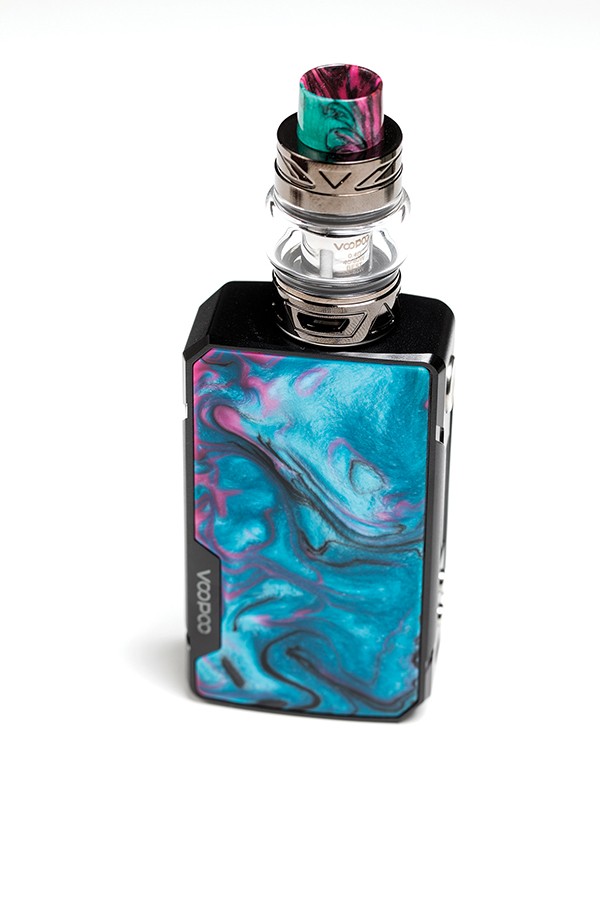
Life-Saving Device
Vaping changed Everett’s life and also the lives of her family, especially her mom, who she says was “deep in the grip of cigarettes.”
“My mom was a two-pack-a-day smoker,” she says. “She was even diagnosed with COPD [chronic obstructive pulmonary disease] about two years before I started vaping. She was hospitalized multiple times. Her doctor told her she would die sooner rather than later if she didn’t stop smoking because she was just that sick.”
Everett says her mom tried “literally everything,” including hypnotism, to stop smoking. Then Everett suggested vaping to her mom, and, in a day, she was also done with cigarettes. “She hasn’t been hospitalized a day since.” Everett’s decision to vape sparked change for her dad, sister, and brother as well, who have all traded in cigarettes for vaping.
“I saw how easy it was for me to put down cigarettes and how vaping changed their lives,” Everett says. “We’re all living a much healthier lifestyle, and really it changed our family’s legacy. And that’s just one family’s story.”
Everett says she’s likely helped about 100 people stop smoking cigarettes through vaping. “I just felt so passionate about it. I had to get the word out and help others find out about this technology.”
That passion led Everett to join three others in starting the Tennessee Smoke Free Association (TSFA) in 2014. Everett is the West Tennessee regional director of the group, which advocates for Tobacco Harm Reduction (THR) through the use of personal vapes. The group seeks to prevent tobacco harm through advocacy, education, and lobbying for legislation supporting vaping on the state and federal level.
TSFA representatives recently traveled to Washington, D.C., to meet with elected officials. Everett says this year they “had their work cut out for them,” as the trip was soon after Trump’s announcement of a potential ban on flavored e-liquid.
Like Bruce, Everett doesn’t want to see flavors go away. Those who support the ban say the move is meant to keep e-cigs out of minors’ hands. Everett doesn’t believe flavored liquids are specifically targeted for adolescents. “All people like flavors,” she says. “I mean, I drink caramel and peppermint vodka. Let’s be real. If you had the choice between nasty tobacco and strawberry, which one are you going to choose?”
Of the e-liquid sales at the 80 vape stores associated with TSFA across the state, only two percent of sales are menthol and tobacco flavor, Everett says. “So that says people are buying flavors.”
Everett says from the start of the outbreak, the public has been “grossly misinformed,” adding, “The media and health officials have created this hysteria around vaping, which we know has led to several deaths and thousands of illnesses. But we know — and the CDC has said — the overwhelming majority of these were due to black market, unregulated THC vape cartridges cut with whatever they can to drive the prices down.”
As a result of misinformation, Everett says people are turning from vapes, “a life-saving technology,” back to cigarettes. “People are buying into it, and I think a lot more people are going to go back to smoking because of it, and that’s a tragedy.
As a registered nurse, Everett says she is “personally ashamed, upset, and aggravated” with health officials who “from the second or third case on, knew exactly what was going on.”
Street Vapes
As the CDC closes in on the likely culprit of the EVALI outbreak, the agency warns against using vapes containing THC, especially those sold informally on the street, as they could be cut with Vitamin E acetate or other unknown chemicals. The agency said these vapes are linked to most of the reported cases, and findings show they “play a major role in the outbreak.”
The Flyer spoke to a local man who sells illicit vapes. The dealer spoke on the condition of anonymity.
Among other THC products, he sells vape cartridges containing THC that he believes come from California. He’s sold about 100 this year, he says. They sell for about $50. The most common brand he sells is Dank Vapes, an unregulated brand whose products were found to contain contaminants. Investigators in Illinois and Wisconsin recently found that 66 percent of patients with vape-related lung injuries in the two states reported using Dank Vapes products. The investigators’ findings were published by the CDC.
They concluded that “Dank Vapes appears to be the most prominent in a class of largely counterfeit brands, with common packaging that is easily available online and that is used by distributors to market THC-containing cartridges.”
The dealer says he can’t be 100 percent sure that the cartridges he’s selling are pure and without additives: “It’s just trust.” But, if one of his customers does get sick, he says he’d close up shop.
“They could come back and get their money, and I’d stop selling cartridges — point blank, period,” he says. “I don’t sell poison to my community. That’s why I sell what I sell, and there’s some stuff I don’t mess with.”
Local and state law enforcement agencies said the following about the presence of illegal vapes in the community:
TBI: “This is not something we’re seeing on a regular basis in West Tennessee. There have been very limited reports of these types of cartridges being sold, but we can’t speak to any specifics.”
Memphis Police Department: “We are not seeing this issue in our community.”
Shelby County Sheriff’s Office: The office did not respond to multiple inquiries.
Not Enough
Lee Berkenstock, a family physician and Memphis’ regional board member for the Tennessee Medical Association (TMA) would like to see more than just illicit vapes made unavailable. Berkenstock says the group’s reservations with vaping are not new. “This is not a new issue at all,” he says. “We’ve realized the health implications from the beginning.”
TMA specifically takes issue with flavored e-cig liquids, which Berkenstock maintains are targeted at adolescents. The group wants the governor to take emergency action to get these removed from the market in Tennessee.
The TMA, along with a group of other Tennessee health-care professionals, sent a letter to Governor Bill Lee in September, urging him and the Tennessee General Assembly to “take a firm stance on this important public health issue by implementing an emergency temporary measure to restrict Tennessee youth from obtaining vaping products and encouraging the General Assembly to take more permanent legislative action when it convenes in 2020.”
Berkenstock says adolescents’ lungs are not fully developed until they are 21 to 25 years old, and excessive vape use before then could increase the chance of serious lung damage.
“Nobody under the age of 18 should be smoking these things,” Berkenstock says. “The only reason to flavor these things as popcorn, gum, or cotton candy is to attract a younger audience.”
Despite the push from TMA and other groups, Lee’s office is not preparing to take action: “This news is tragic, and we continue to face many unknowns about the root cause of vaping-related illnesses,” Laine Arnold, the governor’s press secretary, said in an email to the Flyer. “We are working closely with the Department of Health to monitor this situation.”
Berkenstock questions how many more cases there must be in Tennessee before the governor’s office decides to take action. “I respectfully ask the governor to reconsider his comments on that.” He says the governor is being “inconsistent, at the very least” in his stand on vaping, noting that he’s made declarations against vaping in the past.
“The research he wants is not going to happen unless the citizenry of Tennessee suffer in order to provide it,” Berkenstock says. “I don’t think that’s the way we want to study this problem. We know the ill effects of nicotine, and we know the concentration is way higher in vapes. Why do we think that vaping is going to be better than cigarettes?”
A ban on flavored e-liquid is a “good start,” Berkenstock says, “but it may not be enough. It’s too late to disinvent vaping,” he says, “but one thing we can do as a responsible society is get the most harmful things off of the market.
“We ought to discontinue all vaping products,” Berkenstock adds. “Is that radical? Well, it might seem radical now, but in the 1970s, if you said we’re going to ban smoking in hospitals, they would have thought that was extraordinarily radical. So it may take time, but the effort is worthwhile.”
Long-Term
Catherine Sanders, a pulmonology physician at Le Bonheur Children’s Hospital, says because vaping is relatively new, there isn’t a lot of research that shows its long-term effects.
“We know that vaping can cause acute illnesses like we’ve seen, but we don’t know much about the long-term effects of vaping yet,” Sanders says. “It’s important for the public to know that there’s so much the medical and science communities don’t yet know about it. That’s scary. You really take a gamble if you continue to vape.”
At this point, Sanders says it’s hard to definitively say if vaping is more dangerous than smoking cigarettes. “It’s important to know that vaping is not a safe alternative to smoking, which it has been considered before,” Sanders says. “It’s not this great way to quit smoking or a better way to start. It could be just as harmful, and young people especially need to know that.”
Sanders says there hasn’t been much research on vaping until the last couple of years. “It’s just starting to pop up,” she says. “There’s a big need for research now. I think we need to learn more about these products so we can educate the public on the potential consequences.”
Ultimately, she says, smoking anything, especially something you don’t know the ingredients of, can have long-term effects on the lungs. “If you inhale anything into your lungs, you’re changing the cells of your lungs and your airways,” Sanders says. “So there are always potentially adverse effects from that.”
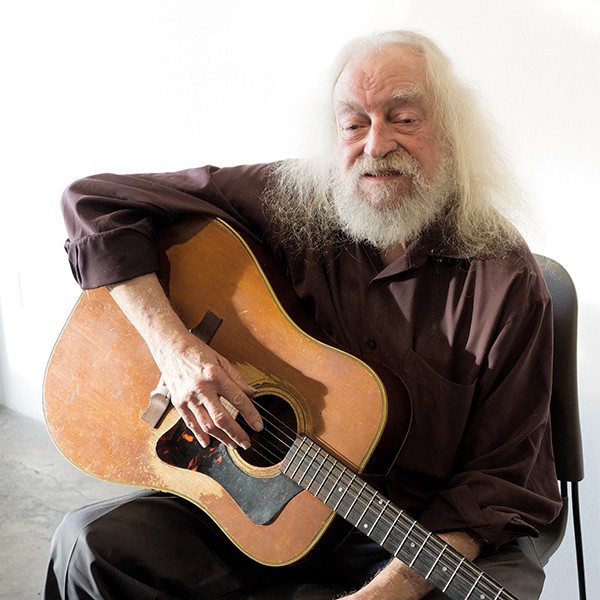 Cindy McMillion, Courtesy Connecting Memphis
Cindy McMillion, Courtesy Connecting Memphis 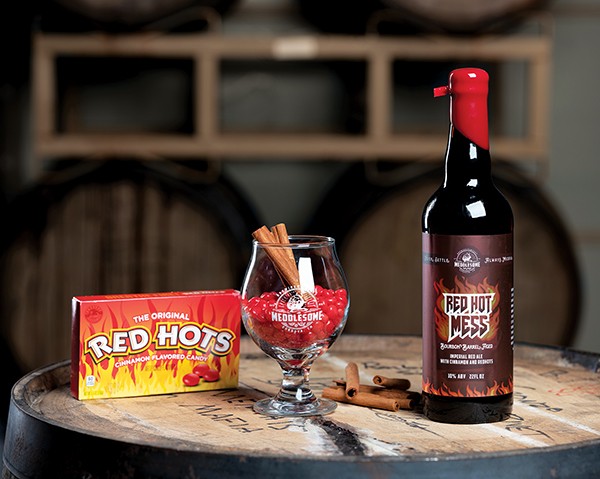 Josh Richardson
Josh Richardson  Brenna Huff
Brenna Huff 
 Larry Kuzniewski
Larry Kuzniewski 


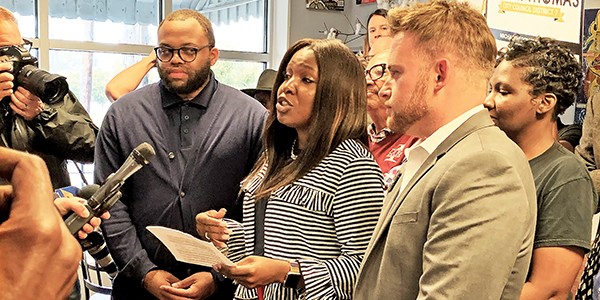 Jackson Baker
Jackson Baker 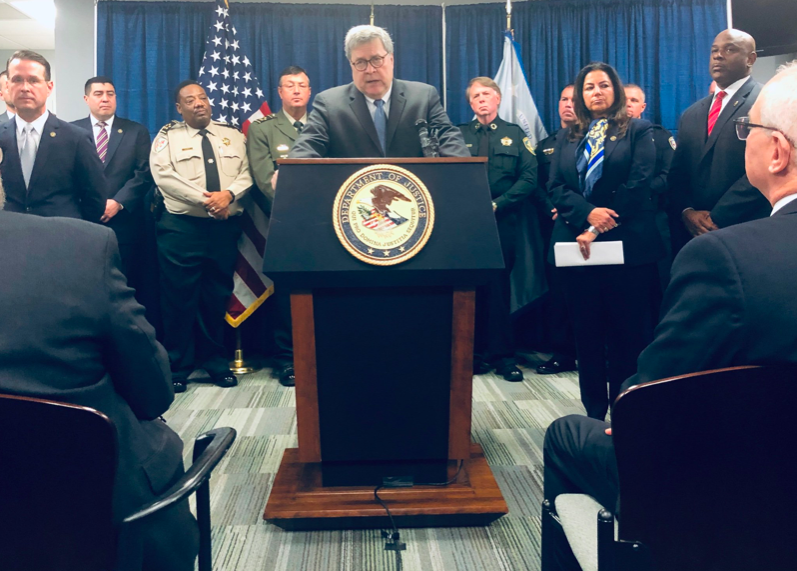 @KerriKupecDO/Twitter
@KerriKupecDO/Twitter 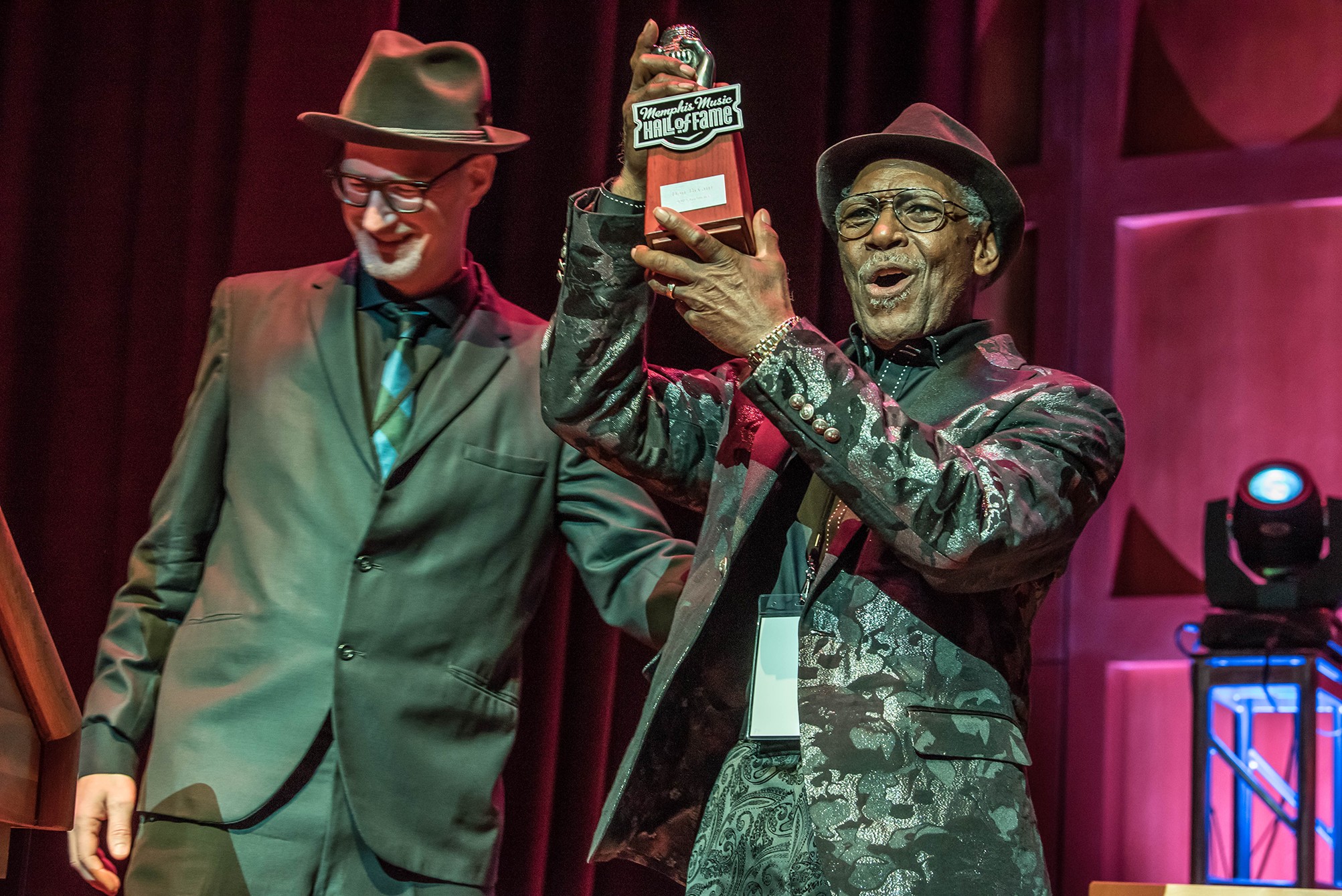 Courtesy Memphis Music Hall of Fame
Courtesy Memphis Music Hall of Fame 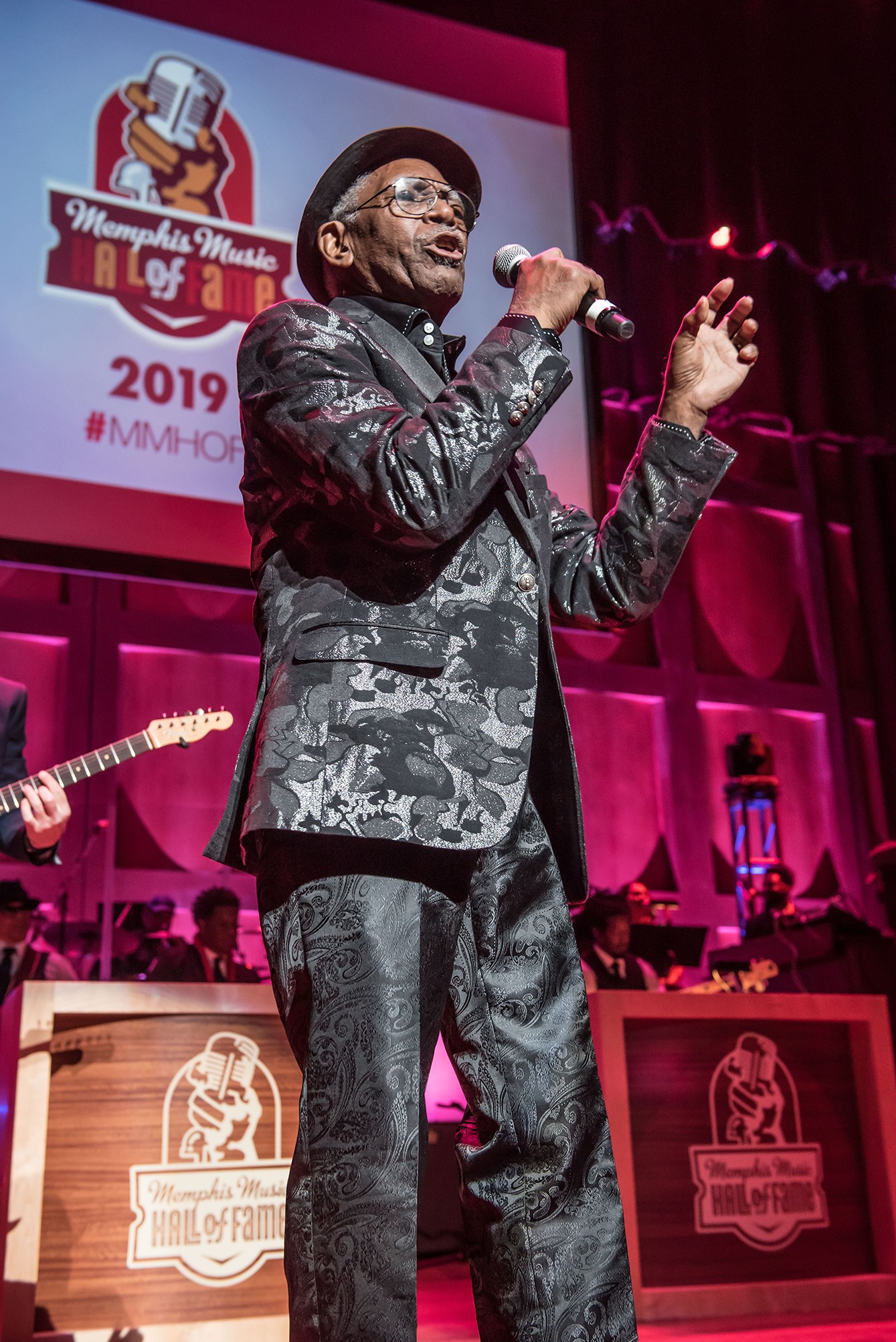 Courtesy Memphis Music Hall of Fame
Courtesy Memphis Music Hall of Fame  Courtesy Memphis Music Hall of Fame
Courtesy Memphis Music Hall of Fame 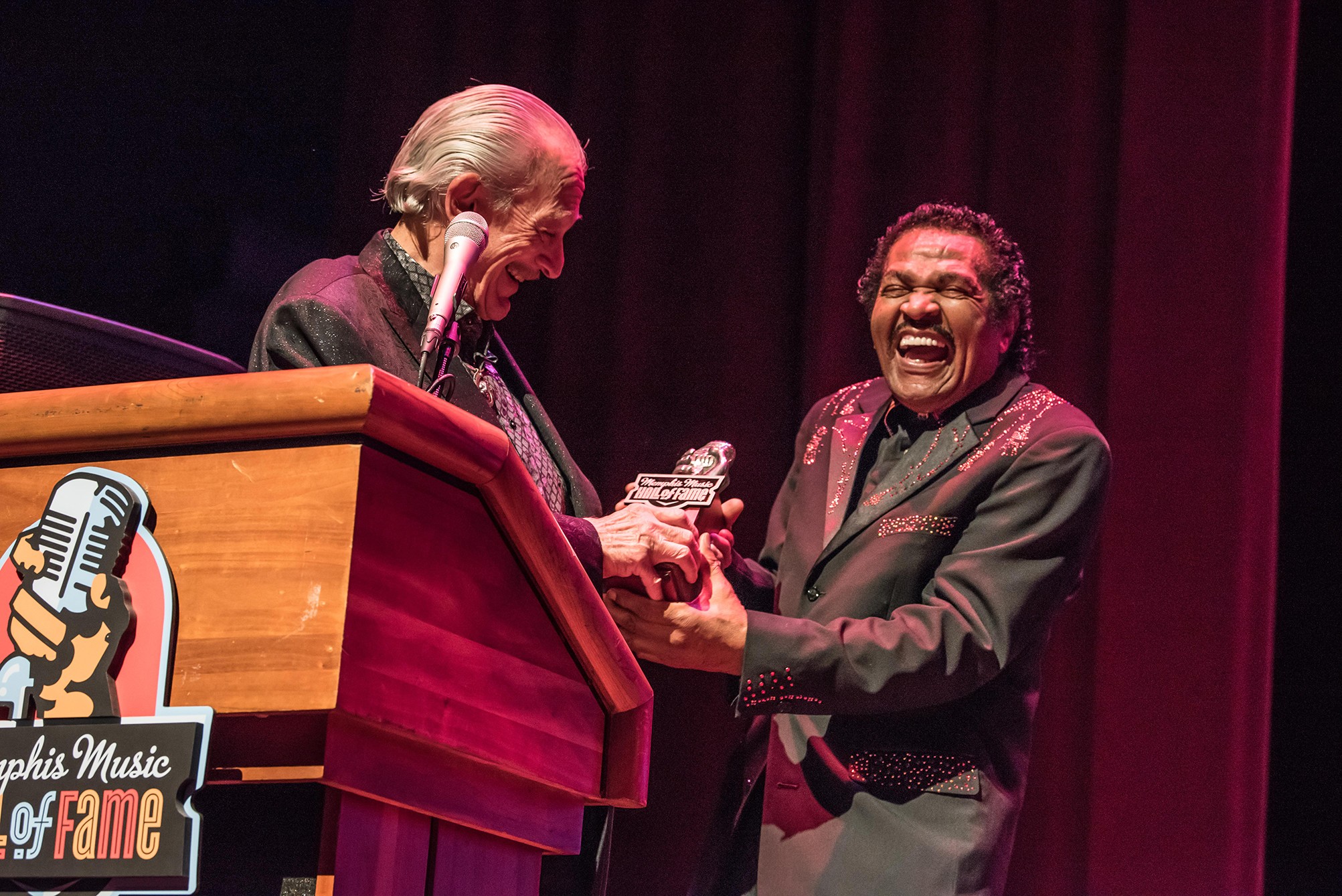 Courtesy Memphis Music Hall of Fame
Courtesy Memphis Music Hall of Fame  Courtesy Memphis Music Hall of Fame
Courtesy Memphis Music Hall of Fame  Courtesy Memphis Music Hall of Fame
Courtesy Memphis Music Hall of Fame  NBA.com
NBA.com  Larry Kuzniewski
Larry Kuzniewski